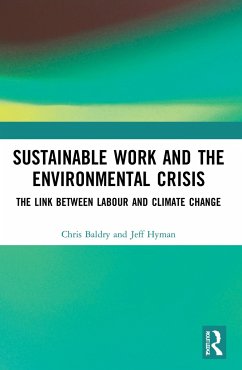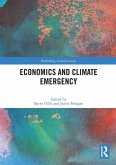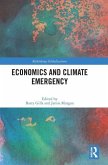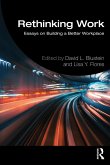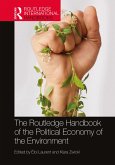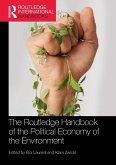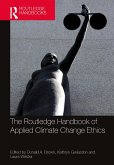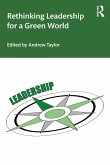Compared to 20 years ago, the jobs many people do today are increasingly characterised by low pay and insecurity, while countless others cope with workplace stress and ill-health. At the same time the consequences of our current model of economic activity are creating dangerous and critical changes in the planet's climate. Until recently debates around these two issues have had little contact with each other.
This book demonstrates that there are definite and complex connections between degraded jobs and a degraded environment, that neither the dominant economic model nor the rate at which we exploit the planet's resources are sustainable and that the limits for both may be reached sooner rather than later. By bringing together insights from critical thinkers in a range of disciplines, the book discusses the requirements and characteristics for work to be at the same time economically, socially and environmentally sustainable and examines the potential for alternative routes to sustainable work in policies and actions that support both the natural environment and worker well-being.
The book will be of interest to researchers, academics and students in the fields of HRM, labour studies, employment relations, sociology, environmental studies and sustainability. It is particularly relevant for those focusing on the link between labour and climate change. It is also highly relevant to policymakers, trade unions and NGOs looking at decent work and sustainability.
This book demonstrates that there are definite and complex connections between degraded jobs and a degraded environment, that neither the dominant economic model nor the rate at which we exploit the planet's resources are sustainable and that the limits for both may be reached sooner rather than later. By bringing together insights from critical thinkers in a range of disciplines, the book discusses the requirements and characteristics for work to be at the same time economically, socially and environmentally sustainable and examines the potential for alternative routes to sustainable work in policies and actions that support both the natural environment and worker well-being.
The book will be of interest to researchers, academics and students in the fields of HRM, labour studies, employment relations, sociology, environmental studies and sustainability. It is particularly relevant for those focusing on the link between labour and climate change. It is also highly relevant to policymakers, trade unions and NGOs looking at decent work and sustainability.

